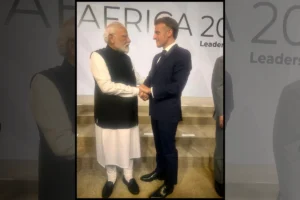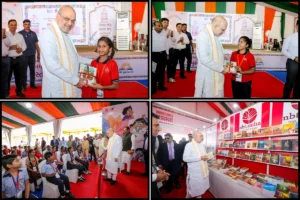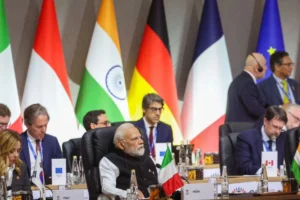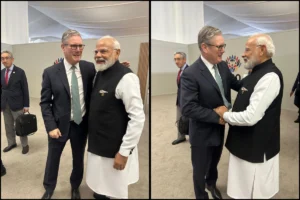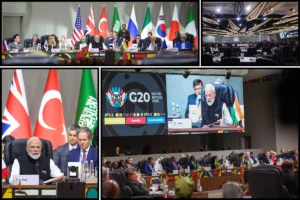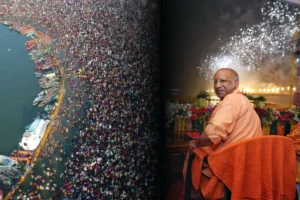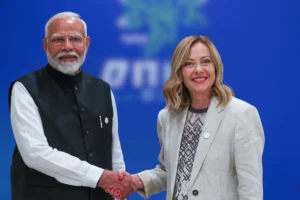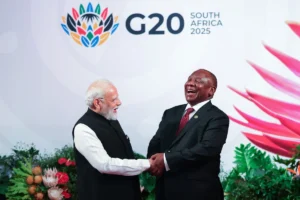
Session on Triangular Struggle in Localization of Sustainable Development Goals
The Session on Triangular Struggle in Localization of Sustainable Development Goals in G-20 Special Think-20 Program was held in Bhopal today. The session invited attention to Women’s economic empowerment as a necessary requirement for removing gender inequality. The session also recognized India’s model in meeting Sustainable Development Goals is historic and appreciated India’s important role in triangular cooperation for localization.
Bhopal: January 17, 2023. Localization has a key role in meeting the G-20 Sustainable Development Goals and requires a triangular collaboration of government, civil society, and private organizations. Through this a change in the global scenario is possible. India is playing a key role in triangular cooperation. India has played an important role in the resolution of the Covid epidemic and the Ukraine crisis as well. India’s model for meeting Sustainable Development Goals is historic. Prime Minister Narendra Modi in Uganda in the year 2018 emphasized increasing the local capacity as much as possible. India is moving at a fast pace towards meeting the 2030 Agenda for Sustainable Development.
This was highlighted by speakers at the session “Triangular Cooperation in Localizing the Sustainable Development Goals” at the G-20’s special Think-20 event at the Brilliant Convention Center today. The session was chaired by Ambassador Amar Sinha, Scholar, RIS, New Delhi. Highlighting the findings of the session, he said that an effective monitoring system for triangular cooperation in the localization of Sustainable Development Goals, innovative financing, ownership of various stakeholders, converting concepts into action, and working for the development goals of G-20, is needed. There is also a need to bring different groups to the center, deal with natural calamities as well as try to prevent them, remove gender inequality, etc. There is also a need to control local governments in some cases where actions are being taken against the G-20’s Sustainable Development Goals, such as in Afghanistan.
Keynote speaker of the session, Joint Secretary, Ministry of External Affairs, Sandeep Chakraborty said that mixed financing, solar energy, environmental protection, circular economy, etc. are needed to achieve sustainable development goals. Through triangular cooperation, work is being done in various fields to achieve the goals in India. India is working at a fast pace on the global innovation program. Many national parks are being maintained with the cooperation of India and France. Many experiments are being done in India for the circular economy. Food waste coming out of hotels is being converted into biogas.
German speaker Uwe Gehlel said that India and Germany are playing an important role in the triangular cooperation. The work done in India in digitalization is unique in the whole world. Dr. Andre D’Souza of the Institute of Applied Economic Research, Brazil, said that various private organizations along with the governments have an important role to play in achieving the G20’s Sustainable Development Goals. The full contribution of society should be taken towards localization. Mr. Gerardo Bracho from Duisburg University, Germany, said that the local concept of ownership should not be disregarded. To achieve sustainable development goals, the priority of the concerned country has to be understood and its citizens have to be empowered.
Dr. Ruchita Beri of MPIDSA, New Delhi, said that along with triangular cooperation, we need to go hand in hand with the South-South cooperation, work on the Colombo plan, food security, health, drinking water, education, and local people for achieving sustainable development goals also for fulfilling the 2030 agenda. India is continuously working in the areas of training, skill enhancement, etc. Dr. Stefan Klingebeil from GIDS, Germany, said that India should do more in the area of development cooperation and localization to achieve the Sustainable Development Goals.
READ THIS ALSO: Think-20’s Plenary Session 5: The impact on trade and the value chain in Covid period victimized LDCs
Addressing the session online, Anthea Mulakala, Director, Asia Foundation, said that for achieving the Sustainable Development Goals, priority should be given to triangular cooperation in the task of localization. China Agricultural University Prof. Dr. Zhang Chonghong said that gender inequality should be addressed through local cooperation. For this, the economic empowerment of women and their education will have to be made more effective, and domestic violence will have to be stopped. Ana Fernandes from the OECD Institute, Paris, said that triangular cooperation is necessary to address global challenges in achieving the G-20 goals. The concept of ownership has to be reshaped by the government, and private sector along with the participation of society. The government cannot do this work alone.
To read more such news, download Bharat Express news apps









